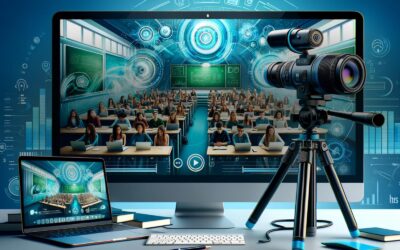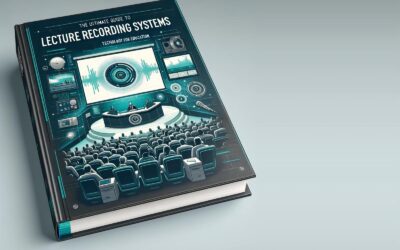Introduction
Your website is the digital face of your brand, shaping first impressions for potential customers. A well-designed and customized WordPress theme ensures that your site truly reflects your brand identity, engages users, and enhances credibility.
In this guide, we’ll explore the significance of customization in WordPress themes and how businesses can leverage tailored designs to create a seamless, user-friendly, and high-performing online presence. From branding consistency to SEO and accessibility, we’ll cover everything you need to build a website that stands out.
The Importance of a Customized Brand Experience
Why Branding Matters in Web Design
Your website serves as the first interaction between your brand and potential customers. It should reflect your core values, messaging, and personality. Customizing your WordPress theme ensures that your site aligns with your brand’s unique identity, helping to:
- Strengthen brand recognition
- Foster customer trust
- Enhance user engagement
Tailoring WordPress for a Unique Digital Identity
WordPress offers an extensive array of pre-designed themes, but a one-size-fits-all approach may not effectively communicate your brand’s essence. Customization allows businesses to create a distinct and memorable online presence, helping them stand out in a crowded digital landscape.
Advantages of Customizing WordPress Themes
1. Flexibility and Creative Freedom
A key advantage of WordPress is its customization capabilities. Businesses can tweak everything from layouts and color schemes to typography and animations to match their brand’s personality.
How Customization Helps Businesses
- Small businesses: Establish a professional and credible image
- Startups: Differentiate themselves from competitors
- Corporations: Maintain consistency across multiple brand channels
2. Consistent Brand Integration Across Platforms
Brand consistency is crucial for recognition. Your website’s design should seamlessly align with your existing brand assets, such as:
- Logos and color palettes
- Typography and font choices
- Imagery and graphics
- Tone of voice in messaging
Data-Driven Insights
An LMS equipped with an LRS can provide valuable analytics and insights into student engagement and performance. Educators can track metrics such as which videos are most watched, where students pause or rewatch, and how video engagement correlates with performance on assessments. This data can inform instructional strategies, helping instructors identify areas where students struggle and tailor their teaching accordingly.
Functional Customization: Beyond Aesthetics
1. Enhancing Website Functionality
Customization is not just about design—it extends to functionality as well. WordPress themes offer numerous features, but customizing them allows businesses to:
- Add custom post types
- Implement advanced navigation menus
- Integrate e-commerce solutions like Woo Commerce
2. Performance-Optimized Customization
Optimizing your WordPress theme for speed and efficiency is critical. Customization helps eliminate unnecessary elements, optimize code, and adhere to best practices, leading to:
- Faster page load times
- Higher search rankings
- Better user retention rates
3. Responsive Design Optimization
With mobile browsing surpassing desktop usage, it’s essential to prioritize responsive design when customizing WordPress themes. A well-optimized site ensures a consistent user experience across:
- Desktops
- Tablets
- Smartphones
Accessibility-Focused Customization
1. Ensuring Inclusivity in Web Design
Web accessibility ensures that users with disabilities can easily navigate and interact with your website. Customizing WordPress themes allows businesses to implement:
- Keyboard navigation compatibility
- Screen reader optimizations
- Color contrast enhancements (meeting WCAG guidelines)
2. Benefits of Accessibility Customization
- Expands audience reach
- Enhances user experience for everyone
- Demonstrates a commitment to social responsibility
Advanced SEO Strategies Through WordPress Customization
1. Customizing for SEO Performance
A well-optimized WordPress theme can dramatically improve search engine rankings. Customization allows for the integration of advanced SEO techniques such as:
- Schema markup implementation for rich snippets
- Optimized breadcrumb navigation for better site structure
- Efficient site speed enhancements to reduce bounce rates
2. Mobile-First SEO Optimization
Google prioritizes mobile-friendly websites. Customizing your WordPress theme ensures your site is optimized for mobile SEO, helping to:
- Improve Google PageSpeed scores
- Enhance search engine visibility
- Drive organic traffic growth
Personalized User Experiences Through Customization
1. Leveraging Data for Personalized Content
Custom WordPress themes can support dynamic content that adapts to user behavior. Personalized experiences can be achieved through:
- Behavior tracking and recommendation engines
- Customized user dashboards
- AI-powered chatbots for real-time engagement
2. Benefits of Personalized Content
- Higher conversion rates
- Improved user satisfaction
- Increased dwell time on site
Monetization Opportunities via Custom WordPress Themes
1. Strategies for Generating Revenue
Customizing WordPress themes opens up various monetization opportunities, such as:
- Subscription-based content
- Premium memberships
- Affiliate marketing and sponsored content
2. Mobile App Integration for Enhanced Revenue
Combining your WordPress website with a mobile app further boosts revenue opportunities by offering:
- In-app purchases
- Push notification promotions
- Loyalty programs and exclusive offers
Conclusion
Customizing your WordPress theme offers endless possibilities to enhance branding, functionality, SEO, and user engagement. By tailoring your website’s design and features to align with your brand’s identity, you create a compelling digital presence that attracts and retains visitors.
Whether you’re focusing on brand consistency, accessibility, SEO, or monetization, investing in a customized WordPress theme unlocks your website’s full potential. Embrace WordPress customization today and elevate your brand’s digital presence!
Search
Categories
- AI 3
- Analytics & Data Science 16
- Blogs 7
- Brand Identity 21
- Business 10
- CMS & LMS 22
- Development 1
- Digital Marketing 19
- Digital Signage 12
- E-commerce 6
- Enterprise solution 15
- Events 1
- Internet of Things 9
- Mobile App Development 15
- News 5
- Open Source Development 12
- SEO Search engine optimization 2
- Uncategorized 3
- Web Design 1
- Web Development 19
- Web Security and Performance 18
- Website Development 1
- WordPress Development 3







